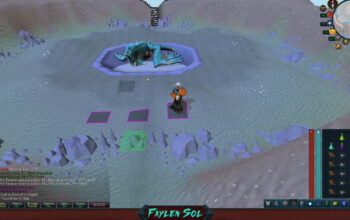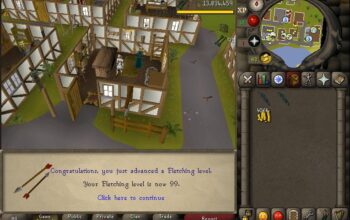
In the ever-expansive world of Diablo 4, a recurrent sentiment among players revolves around the overwhelming number of rare item drops and the subsequent need for extensive inventory management. The frequency of sifting through numerous items after every dungeon run has led some players to yearn for a shift towards a “quality-over-quantity” approach when it comes to loot drops.
The exhaustion induced by the constant need to sort through a plethora of rare items prompts a contemplation of whether a more curated loot system would enhance the overall gaming experience. The desire for fewer but higher-quality drops arises from the belief that it would significantly reduce the time spent on inventory management, allowing players to focus more on the immersive gameplay.
A prevalent speculation within the community suggests that the current inventory management mechanics are intentionally designed to be time-consuming. Some argue that this design choice is geared towards encouraging players to invest in additional inventory tabs, thereby monetizing the need for more space. The anticipation of an itemization fix in the future hints at potential changes, possibly involving a reduction in the abundance of stats with a greater emphasis on the rarity of certain stat combinations. The aim is to create a more strategic and thoughtful approach to item evaluation, with each stat’s impact being carefully considered.
A critical perspective on the game’s design philosophy asserts that every aspect, from loot drops to inventory management, is meticulously crafted to consume the player’s time. This viewpoint posits that the game is engineered to prioritize time-sink mechanics, subtly nudging players to invest more time without necessarily enhancing the enjoyment derived from the gameplay itself. The absence of a loot filter, despite player demand, is attributed to the developers’ reluctance to nullify a mechanic intentionally designed to consume time.
Acknowledging the presence of time sinks scattered throughout the game, players assert that even minor disruptions, like the codex not being labeled and defaulting to all players, contribute to a cumulative loss of time. These seemingly trivial interruptions, when extrapolated across a player base, result in significant additions to overall playtime metrics. The narrative extends to the perception of the game feeling like a chore or a job, with players expressing a sense of being manipulated by mechanics designed to monetize their time.
An insightful analysis brings attention to the potential shift in time sinks related to gear and itemization. Speculation revolves around the manipulation of drop rates, a subtle adjustment that may not be easily discernible without concrete evidence. The existing loot box drop system for Uber Unique and regular uniques is scrutinized for its perceived lack of true randomness, with suspicions arising from patterns of consistent duplicates that deviate from traditional RNG expectations.
In conclusion, the community awaits the unfolding of Diablo 4’s itemization and loot mechanics – Balance D4 gold and equipment marketplace, anticipating potential adjustments that could address the concerns related to time sinks and enhance the overall gaming experience. Whether through a reduction in the quantity of drops or a reevaluation of RNG mechanics, players hope for a more streamlined and engaging approach that prioritizes quality and enjoyment over time-consuming inventory management.



